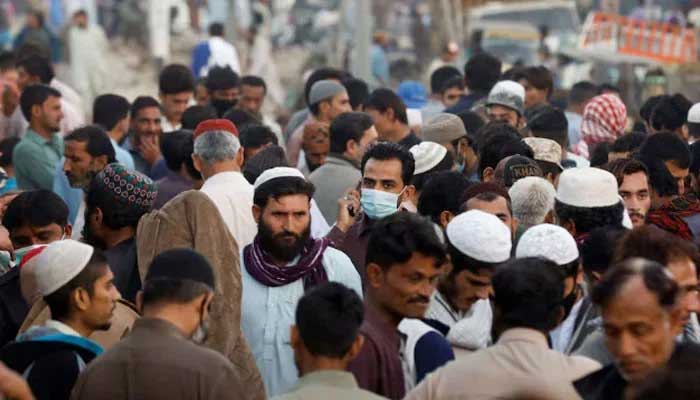Beyond the 27th
Push by Pakistan's ruling structure to amend Constitution appears to aim primarily at further consolidation of power while extending patronage
November 13, 2025

The push by Pakistan's ruling structure to amend the Constitution for the 27th time fails to impress on a key front-the welfare of the people. The entire exercise appears aimed primarily at a further consolidation of power while extending patronage, through steps like enlarging the induction of ministerial rank advisers.
While the present ruling structure reassures itself of becoming unassailable after the latest constitutional amendment, the future of Pakistan remains surrounded by uncertainty. In the past two years, members of the ruling clan have repeatedly commended themselves for steering Pakistan away from a default on its foreign debt repayments.
And yet, this success is easily overshadowed by unresolved questions over the plight of Pakistanis, notably more than 40% of the population living below the poverty line. This is indeed tragic and alarming.
Pakistan's internal economic divide is a pressing reality that has powerfully and repeatedly reminded historians of the apt guidance by Hazrat Ali (a.s.), outlining a fundamental pillar of statecraft: "Society can survive with 'kufr' (infidelity) but not injustice".
From thereon has flowed a precious lesson in the history of the world, notably the fate of empires that crumbled under the weight of inner contradictions. Taking the cue from this lesson of history, it must be mandatory for members of Pakistan’s ruling structure to redouble their campaign for narrowing the country’s internal divide.
In this background, the 27th Amendment must be followed with two interrelated initiatives at the federal and provincial levels, notably Punjab. The battle against climate change and reversal of the downturn surrounding Pakistan's agriculture will be fought and won or lost in Punjab, where evidence of recent policy failures has pushed down farm incomes by a large margin.
First, key players in Pakistan need to agree on a revival of the economy, anchored primarily on lifting the badly sagging farm incomes. The federal government’s recent announcement of guaranteeing a minimum purchase price of wheat stocks from the next crop fails miserably to reverse the damage already done.
Just weeks after the provincial government of Punjab came to power in early 2024, it abruptly reversed its promise to purchase stocks from the new crop in spring that year at Rs3900 per maund.
Within days, the returns to farmers crashed by at least one-third below their expectations. That failure has been followed by widely reported evidence of rising rural poverty at a pace seldom witnessed before.
Meanwhile, the Punjab government's recent announcements to support farmers through means such as providing loans for new tractors or credit for inputs of crops fail to compensate for the damage already done. In effect, Pakistan's entire chain of food supplies remains dangerously stretched.
This year's heavy rainfall and floods have only caused further aggravation to the livelihoods of rural dwellers. And there is more to come with forecasts of heavier rainfall next summer triggered by climate change. Any further deviation from the central cause of securing Pakistan’s threatened food supply will amount to one of the worst blunders in the history of Pakistan.
Second, it is vital to work aggressively towards reviving the existing economy, notably the industrial sector, which also faces a continuing downturn. Pakistan suffers from a lethargic economy in a slowdown mode whose future rests upon a complete overhaul of the existing policy framework. An honest beginning towards a new future must tackle Pakistan’s political discord, which has sharpened in the wake of the February 2024 elections. Imran Khan remains in jail while his party leads the opposition.
On the streets, the PTI remains popular. But that popularity remains intact due to the government’s failure to create fresh opportunities for low-to-moderate-income Pakistanis across the board. It is this outcome which helps explain the popular mood across the country.
Going forward, the revival of the popular mood must be led by responding to the public's needs where it matters the most. For months, the Punjab government has repeatedly promised to oversee fancy new development projects. In an ideal world, Pakistan could have embarked upon such initiatives, provided the country was able to afford them.
But the challenges which surround Pakistan’s outlook require an urgent change of direction. On its own, the 27th Amendment may have faced passing criticism if the country were surrounded by fewer challenges and fast-rising opportunities. But the scale of the challenges that now engulf Pakistan requires an uninterrupted focus of the kind never seen before in the country's history.
The writer is an Islamabad-based journalist who writes on political and economic affairs. He can be reached at: [email protected]
Disclaimer: The viewpoints expressed in this piece are the writer's own and don't necessarily reflect Geo.tv's editorial policy.
Originally published in The News











